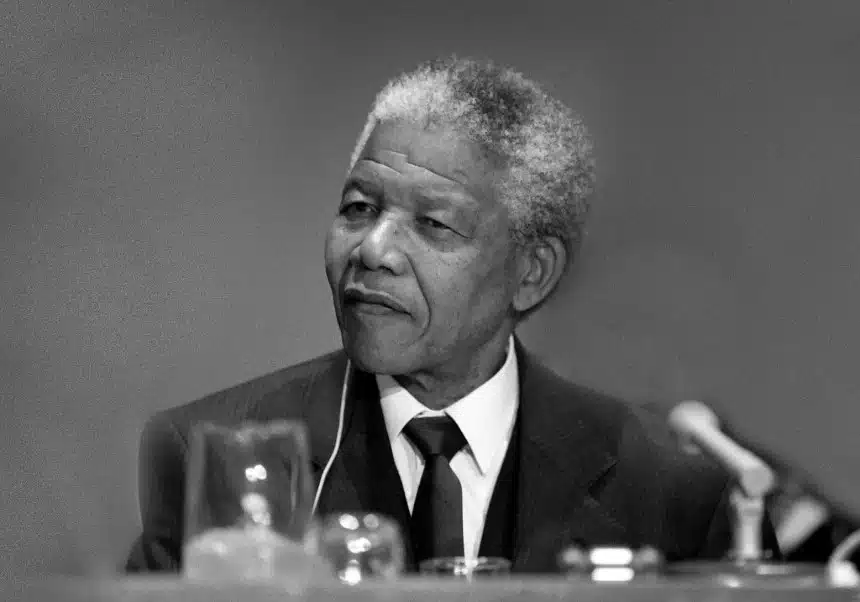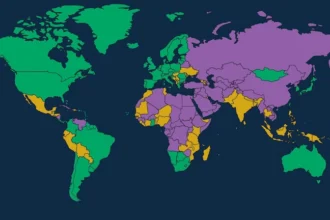The concept of individual autonomy lies at the heart of human rights, transcending mere legal constructs to become intrinsic moral entitlements inherent to every individual by virtue of their humanity. These rights go beyond geographical and cultural boundaries, embodying universal principles that demand unwavering respect for human dignity and the safeguarding of fundamental freedoms. However, their realization is a multifaceted endeavor, intricately entwined with the dynamic interplay between individual autonomy and societal welfare, legal frameworks, ethical imperatives, and political aspirations.
Delving into the philosophical underpinnings of human rights, this exploration examines the pivotal role of legal recognition in translating ethical ideals into enforceable entitlements. It also underscores the ethical imperative of societal engagement in upholding and safeguarding these rights. Moreover, it sheds light on the persistent challenges encountered in ensuring universal adherence to human rights standards amidst diverse cultural landscapes and political ideologies.
The ethical dimension of human rights illuminates the delicate balance between societal harmony and individual autonomy.
With a focal point on South Africa as a case study, this article not only reflects on the nation’s historical trajectory towards human rights realization but also addresses its contemporary challenges and ongoing reform efforts. It emphasizes the necessity for a comprehensive approach involving legal reforms, educational initiatives, civic engagement, and international cooperation to bridge the divide between human rights ideals and lived realities.
The Essence of Human Rights
Human rights emerge as a cornerstone of ethical, social, and legal constructs, acting as inherent moral entitlements that every person possesses. These rights, deeply rooted in the natural rights tradition, underscore the necessity of treating all individuals with dignity and respect, simply because they are human. This principle of universal equality and fairness transcends legal recognition, positioning human rights as minimum standards of human treatment that are indispensable and inalienable.
The aspiration for universal human rights encounters practical obstacles in global implementation.
The transition from ancient philosophical debates to contemporary legal frameworks illustrates the evolution of human rights. It highlights the critical role of legal status in ensuring these rights are enforceable, emphasizing the importance of a legal framework that supports the practical application of human rights. Despite their universal aspirations, the actualization of human rights is significantly influenced by a complex interplay of ethical principles, social norms, and legal mandates. This complexity necessitates a comprehensive approach by governments to prioritize the well-being of their citizens, ensuring that the protection and promotion of human rights are central to governance and public policy.
The discourse on human rights also calls into question the balance between the collective good and individual autonomy. It raises critical considerations about how societies can uphold the rights of individuals while ensuring that these rights do not infringe on the autonomy and freedom of others. This balance is pivotal in the context of human rights law, as it seeks to safeguard individual autonomy against governmental power, while also recognizing the government’s role in protecting and fulfilling human rights for all.
Balancing Individual Autonomy and Societal Harmony
The ethical dimension of human rights illuminates the delicate balance between societal harmony and individual autonomy. It underscores the dual nature of humans: as beings striving for personal survival and as members of a community seeking collective well-being. This duality necessitates a framework where human rights and duties intersect, ensuring that the pursuit of individual autonomy does not infringe upon the rights of others. Vulnerable and marginalized groups, often at the periphery of policy and protection, emerge as focal points in the ethical discourse on human rights. Their inclusion and protection highlight the importance of a society that values all its members equally, respecting their dignity and rights.
The commitment to uphold human rights ethically demands an acknowledgment of the interconnectedness of all individuals within a society. It calls for a recognition that individual autonomy should be exercised with consideration for the collective good, fostering an environment where every person can lead a dignified and fulfilling life. This ethical perspective is not just a philosophical ideal but a practical necessity, guiding actions and policies to protect those most at risk of rights violations.
Moreover, the ethical dimension of human rights challenges us to reconsider our societal structures and the role of governments in safeguarding these rights. It advocates for a society where government actions and individual behaviors are aligned with the core principles of human dignity and mutual respect. By emphasizing the role of ethics in human rights, this perspective lays the groundwork for a more just and equitable world, where individual autonomy and societal well-being are not at odds but are mutually reinforcing objectives.
Legal Recognition and Universal Challenges
The legal recognition of human rights presents a nuanced challenge within the global arena. International laws and treaties mark significant steps towards universal human rights standards. Yet, the complexity of globalizing moral behavior underscores the difficulty in harmonizing these rights across diverse legal and cultural landscapes. This challenge is particularly evident in the varying degrees to which countries implement human rights, often influenced by national legal systems and cultural norms. The question of universality becomes central, as it confronts the impact of distinct community values on the recognition and application of human rights.
The South African context underscores the broader global challenge of aligning human rights ideals with reality.
Furthermore, the legal dimension emphasizes the critical role of international recognition in legitimizing human rights. However, the aspiration for universal human rights encounters practical obstacles in global implementation. These challenges highlight the tension between global standards and national sovereignty, where cultural differences and legal traditions can either facilitate or hinder the realization of human rights.
The discourse on legal recognition also brings to light the importance of individual autonomy within the framework of human rights law. Ensuring that legal systems respect and promote individual autonomy while striving for universal human rights standards requires a delicate balance. This balance is crucial in addressing the disparities in human rights practices and in fostering a more inclusive approach that accommodates diverse cultural and legal contexts.
Political Struggles and Human Rights Evolution
Political struggles have significantly shaped the evolution of human rights, transforming ethical principles into legally binding entitlements. The history of such struggles against injustices has been instrumental in creating the legal frameworks that protect human rights today. These political processes reveal the limitations of political power in safeguarding human rights, thus underscoring the crucial role of democracy and active political participation.
The journey from moral arguments to legal protections highlights the dynamic relationship between societal demands for justice and the political will to institutionalize these demands. Political deliberation and the formation of grounded opinions have led to political theories that support the global acceptance of human rights, aiming to prevent the recurrence of past injustices.
However, the political dimension also exposes the challenges faced by states in protecting human rights. While political decisions can give rise to human rights infringements, the law sets specific limitations on state power, promoting active individual participation in political decisions. This ensures that voices are heard, especially in decisions affecting individuals’ rights and lives.
Democracy, as more than a mere political institution, represents a value system that transcends various aspects of social life. The value of robust democracies for the realization and protection of human rights is paramount, measuring their effectiveness by the dedication of all members, including governments, to uphold human rights and laws equally.
The political struggles and processes underscore the importance of translating moral human rights into legally protected entitlements, emphasizing the necessity of democracy and active participation for achieving global human rights standards. This transformation is critical in ensuring that political power is used responsibly to protect and promote human rights, reflecting the collective will to live in a just and equitable society.
Persistent Violations and the Path Forward
In South Africa, the journey towards realizing human rights is marred by historical complexities and contemporary challenges. Despite the end of apartheid and the establishment of a democratic government in 1994, the nation continues to grapple with significant human rights issues. These include, but are not limited to, systemic inequality, racial discrimination, and economic disparities that disproportionately affect the marginalized and vulnerable segments of the population.
Notably, the country’s legal framework, while robust and progressive on paper, often faces hurdles in implementation and enforcement. Issues such as corruption within various levels of government, police brutality, and violations of socio-economic rights remain prevalent, underscoring a gap between legislative advancements and their practical application.
The persistence of these issues highlights a crucial need for a multifaceted approach to human rights advocacy and reform in South Africa. This approach must encompass not only legal reforms and stronger enforcement mechanisms, but also educational initiatives aimed at fostering a culture of human rights respect and protection. Additionally, it necessitates active civic engagement and political will to address and rectify systemic injustices.
The South African context underscores the broader global challenge of aligning human rights ideals with reality. It demonstrates the importance of a sustained commitment to human rights principles, emphasizing the need for international cooperation, local activism, and an informed and engaged citizenry. The path forward for South Africa, and indeed for human rights realization globally, requires a concerted effort to bridge the gap between legal frameworks and the lived experiences of individuals, ensuring that the promise of human rights becomes a reality for all.
Conclusion: A Call for Educated Commitment
In the philosophical exploration of human rights, a compelling argument unfolds, emphasizing the necessity of a robust legal framework to ensure adherence to these crucial rights. Yet, this journey transcends the legal domain, spotlighting the critical role of education and societal engagement in nurturing a culture that deeply respects and actively protects human rights. The path to fully realizing human rights is intricate and collective, demanding not only governmental action but also a widespread societal commitment.
This call to action underscores the importance of an educated commitment where every member of society is both informed about and actively involved in upholding human rights. It is through this collective endeavor—enriched by a deep understanding of human rights and fueled by a commitment to action—that real progress can be made. Human rights are not just a governmental mandate but a societal responsibility, a shared duty that calls for the active participation of all individuals.
The conclusion of this exploration is a vibrant appeal for an engaged society where education serves as the cornerstone for human rights advocacy. It is a vision of a world where every individual is empowered to contribute to the realization of human rights, making the global community not just a witness to these rights but active participants in their safeguarding and promotion. This vision for the future is rooted in the belief that through educated commitment and collaborative effort, the ideal of universal human rights can move from aspiration to reality, embodying the principles of dignity, equality, and justice for all.
Adapted from an academic work for a wider audience, under license CC BY 4.0









